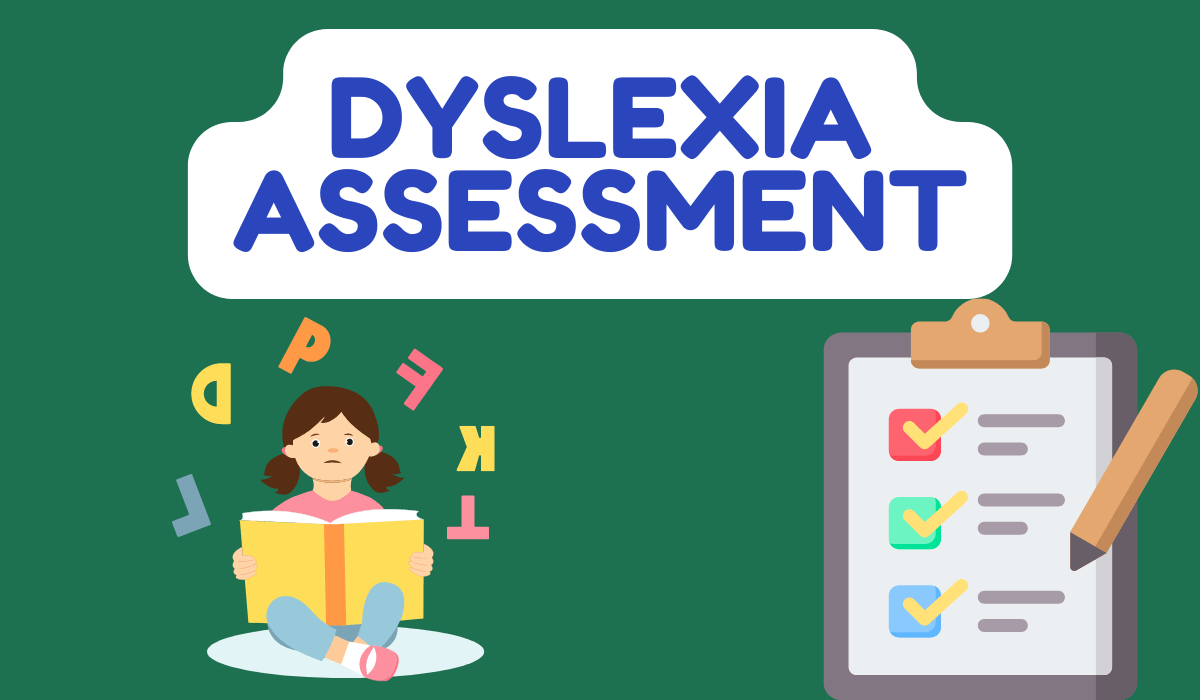
Dyslexia is a condition everyone seems to know about but cannot define with absolute certainty. It’s neurological and distinct from other reading and writing struggles, but the range of symptoms and similar conditions complicate diagnosis. Therefore, the key to helping students with dyslexia is using assessment tools that produce the most effective and efficient data. A layered and complex diagnostic protocol leads to a more precise identification of reading struggles, dyslexia or otherwise, and, therefore, more appropriate interventions.
How Is Dyslexia Diagnosed?
The teacher’s documentation of assessments and observations is often the first piece of the dyslexia diagnosis puzzle. Once a student has been referred for further testing, the team of providers conducts a series of dyslexia assessments and screens to suggest a diagnosis. The various providers work with the child, their guardian, and their teachers to create a complete picture of the child’s particular learning difficulty. They use a multitude of assessments to gather information about the student’s experience and background, including:
- Questionnaires about academic issues, physical and cognitive development, and medical history
- Assessments of reading and language ability
- Hearing, vision, and neurological tests
- Psychological evaluations for social problems, depression, or anxiety
- Tests of reading process and reading skills
Once a child has been identified as having dyslexia, it is crucial to give them specialized care and therapy suited to their needs. These treatments are intended to help people get better and get past the difficulties that come with dyslexia. To increase the effectiveness of the therapy aids like tablets or auditory devices are used. Forbrain is an illustration of a supportive tool that can be applied in therapy sessions for kids with dyslexia. The Forbrain auditory feedback device uses bone conduction technology and a microphone that instantly plays back audio to improve speech production and auditory processing. These interventions will help your child’s cognitive growth so they have a stronger start in life.
What Conditions Co-Occur With Dyslexia?
Dyslexia does not discriminate based on intellectual abilities. The traditional understanding of dyslexia as a function of an unexpected discrepancy between cognitive ability and performance still holds, but that gap is relative. Most dyslexia screenings no longer include intelligence testing as a part of the diagnostic protocol.
That said, dyslexia symptoms may mimic other health conditions or learning disabilities; a full dyslexia assessment includes a slate of educational, cognitive, medical, and psychological screenings. Many health conditions co-occur with difficulty in literacy, so effective treatment often requires a multidisciplinary team of medical professionals, speech-language pathologists, neurologists, and psychologists. Common co-occurring disorders or conditions are often related to physical or mental health, including:
- Attention-deficit/hyperactivity disorder (ADHD)
- Atypical sensory processing
- Autism spectrum disorder (ASD)
- Depression and anxiety
- Developmental coordination disorder (DCD
- Specific learning disabilities
What Literacy Skills Do Dyslexia Assessments Evaluate?
Dyslexia assessments, like those offered by WPS, evaluate the student’s current literacy skills with their expected literacy development based on age and grade. For instance, most people with dyslexia have adequate or strong higher-level oral skills for their age, which means they can gather meaning from listening and craft appropriate sentences to express their thoughts. Conversely, people with dyslexia struggle with low-level skills, the ones required for learning to spell and write using the sounds of the language. Dyslexia assessments like the Tests of Dyslexia (TOD™) evaluate these skills, called “phonological processing,” along with the following:
- Decoding
- Fluency or automaticity
- Reading comprehension
- Spelling
- Vocabulary knowledge
- Word recognition
The results of the dyslexia assessment, interpreted in context with the other evaluations, add the final piece of the literacy difficulty puzzle so the intervention team can get started with the student. Learn more about how to help kids succeed in school using dyslexia assessment tools from WPS.
Sources:
https://dyslexiahelp.umich.edu/professionals/learn-about-dyslexia/diagnosing-dyslexia/tests
https://www.bdadyslexia.org.uk/services/assessments/diagnostic-assessments/what-happens-during-a-diagnostic-assessment
https://dyslexiahelp.umich.edu/parents/learn-about-dyslexia/dyslexia-testing/what-to-expect-in-dyslexia-evaluation






